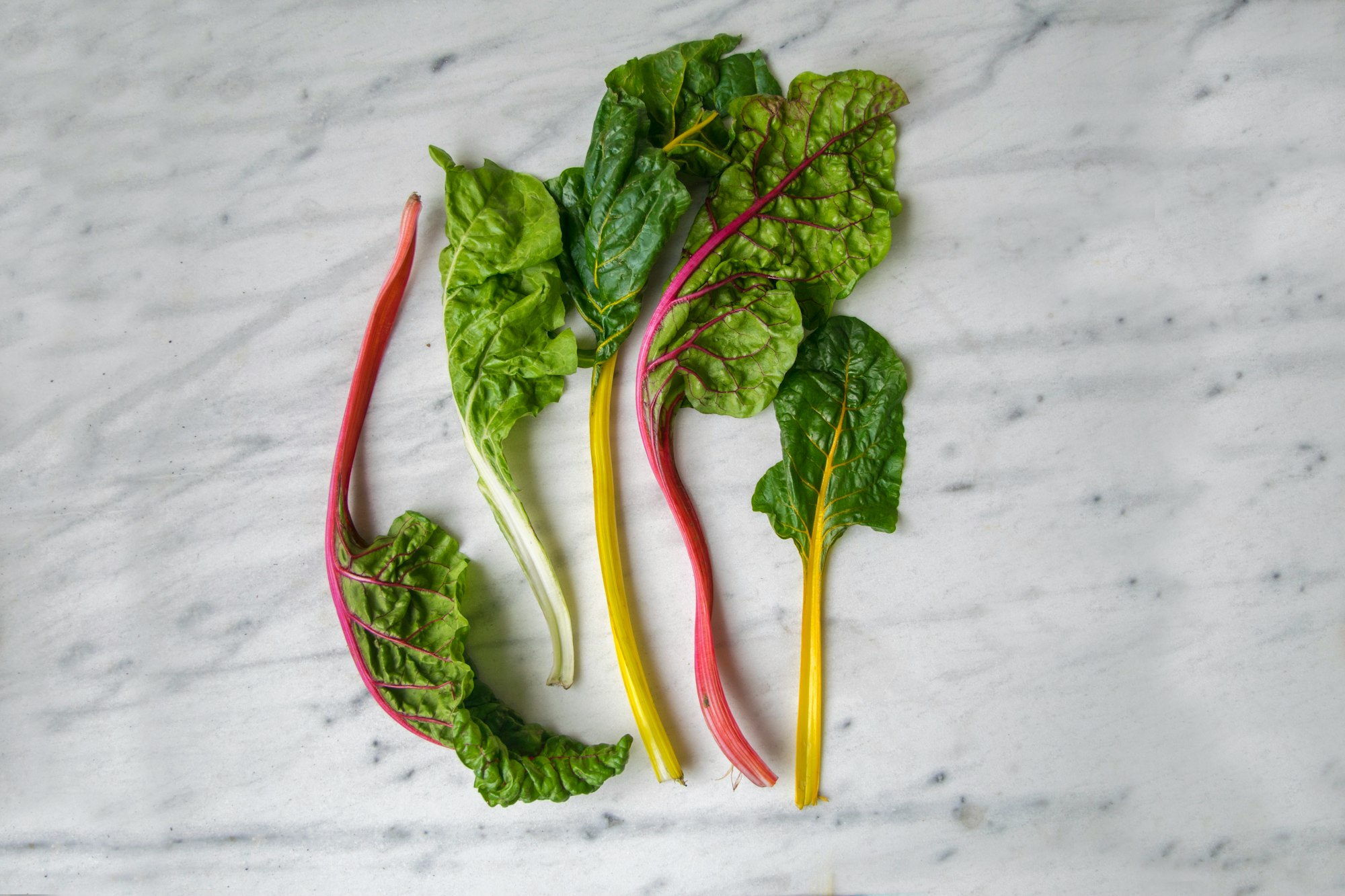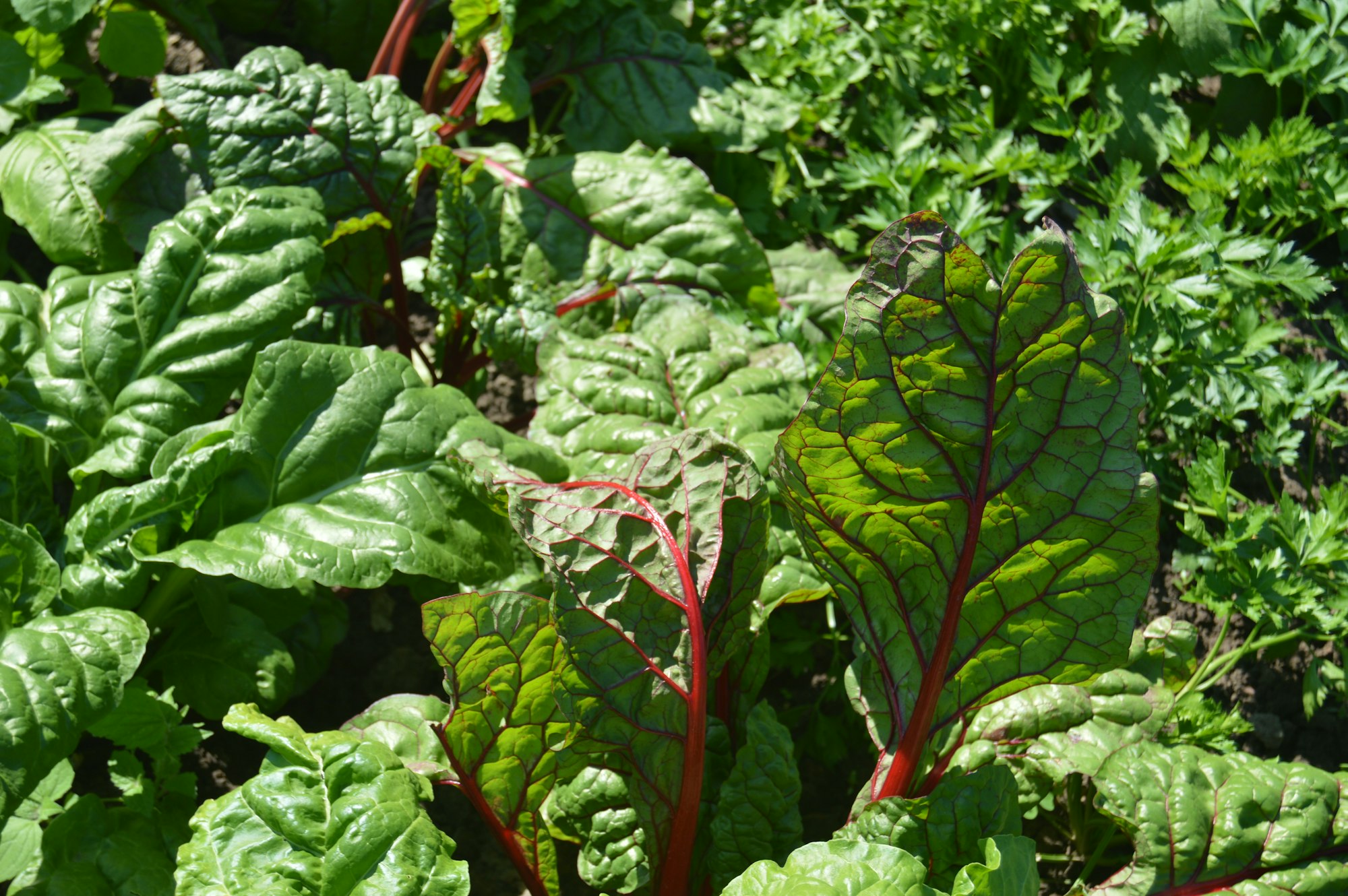As pet owners, we are often tempted to share our favorite foods with our furry friends. However, when it comes to vegetables like Swiss chard, it's essential to understand whether they are safe for our canine companions. Let's delve into the nutritional aspects, potential benefits, risks, and guidelines for feeding Swiss chard to dogs.
Many pet owners are curious about expanding their dog's diet beyond traditional dog food. This curiosity often leads to questions about the safety and suitability of certain human foods for dogs. In this article, we will explore the question: Can dogs eat Swiss chard?

What is Swiss Chard?
Before we delve into whether dogs can eat Swiss chard, let's understand what this leafy green vegetable is. Swiss chard belongs to the Chenopodiaceae family and is loaded with essential nutrients such as vitamins A, K, and C, as well as minerals like potassium and magnesium. Typically consumed by humans in various dishes, Swiss chard is known for its vibrant colors and earthy flavor.
Nutritional Composition of Swiss Chard
Swiss chard stands as a nutritional powerhouse for humans, boasting an impressive array of vitamins and minerals. However, when considering its potential incorporation into a dog's diet, understanding the nutritional composition is paramount. Here's a breakdown of what Swiss chard brings to the table:

Vitamins
Swiss chard is rich in essential vitamins, including:
- Vitamin A: Vital for vision, immune function, and skin health.
- Vitamin K: Crucial for blood clotting and bone health.
- Vitamin C: An antioxidant supporting the immune system and overall health.
Minerals
The mineral content of Swiss chard includes:
- Potassium: Important for heart health and maintaining proper fluid balance.
- Magnesium: Essential for muscle and nerve function, as well as bone health.
Fiber
Swiss chard is a good source of dietary fiber, promoting digestive health and potentially aiding in weight management for dogs.
Antioxidants
The presence of antioxidants in Swiss chard can contribute to neutralizing free radicals, supporting overall cellular health.
Can Dogs Benefit from Swiss Chard?
While Swiss chard offers a plethora of nutrients beneficial to humans, the question remains: can dogs reap similar advantages? The answer is nuanced.
Potential Benefits:
- Nutrient Boost: If incorporated in moderation, Swiss chard can contribute to a well-rounded canine diet.
- Antioxidant Support: The antioxidants present may aid in reducing oxidative stress and promoting cellular health.
- Dietary Fiber: The fiber content can assist in maintaining healthy digestion and bowel regularity.
Risks and Concerns
However, before hastily adding Swiss chard to your dog's bowl, it's crucial to be aware of potential risks and concerns:
Oxalates:
Swiss chard contains oxalates, compounds that, when consumed in excess, may contribute to the formation of kidney stones in some dogs. This risk emphasizes the importance of moderation.
Allergies and Sensitivities:
Just like humans, dogs can have individual allergies or sensitivities to certain foods. Introduce Swiss chard cautiously and monitor for any adverse reactions.
Preparation Methods:
Certain cooking methods can reduce the oxalate content and enhance digestibility. Feeding raw Swiss chard may not be advisable due to these concerns.
Kidney Issues:
Dogs with pre-existing kidney issues might be more susceptible to complications related to oxalates. Consulting with a veterinarian is essential for dogs with underlying health conditions.
Preparing Swiss Chard for Dogs
When it comes to incorporating Swiss chard into your dog's diet, proper preparation is paramount to ensure both palatability and safety. Here are guidelines on how to prepare Swiss chard for dogs:
Cooking Methods:
- Steaming:
- Steaming Swiss chard is an excellent method to retain its nutritional value while making it more digestible for dogs.
- Steaming also helps to break down oxalates, reducing the risk of kidney stone formation.
- Boiling:
- Boiling Swiss chard in plain water is another option, but be cautious with the amount of water used to avoid nutrient loss.
- Drain excess water to prevent dilution of the beneficial nutrients.
- Chopping or Pureeing:
- For small dogs or those with dental issues, chopping or pureeing Swiss chard can make it easier for them to consume.
- This also aids in the digestion process.
Removing Stems:
- Trimming Stems:
- Trim the tough stems of Swiss chard, as they can be challenging for dogs to chew and digest.
- Focus on the tender leaves, which contain the majority of the nutrients.
- Avoiding Seasonings:
- When preparing Swiss chard for dogs, avoid adding any seasonings, salt, or spices.
- Dogs do not need added flavorings, and some seasonings may be harmful.
Moderation is Key
While Swiss chard can offer nutritional benefits, the key to a healthy canine diet is moderation. Here's why moderation is crucial when feeding Swiss chard to dogs:
Oxalate Content:
- Swiss chard contains oxalates, which in excess, can pose a risk of kidney stones.
- Feeding in moderation helps mitigate this risk and ensures a balanced diet.
Balanced Diet:
- Dogs require a diverse diet to meet all their nutritional needs. Swiss chard should be part of a balanced and varied meal plan.
- Avoid relying solely on Swiss chard or any single ingredient.
Portion Control:
- Carefully control the portion sizes based on your dog's size, breed, and overall health.
- Overfeeding can lead to digestive issues and may negate the potential benefits.
Monitor for Reactions:
- Even with proper preparation and moderation, monitor your dog for any adverse reactions.
- If you observe signs of allergies or digestive discomfort, consult your veterinarian promptly.
Consult with a Vet:
- Before introducing Swiss chard or any new food into your dog's diet, consult with your veterinarian.
- Vets can provide personalized advice based on your dog's specific health needs.
Ensuring your dog's well-being is paramount when introducing new foods like Swiss chard. Watch for the following signs that may indicate allergies or discomfort:
Digestive Issues:
- Vomiting: Persistent or recurrent vomiting after consuming Swiss chard could signal an adverse reaction.
- Diarrhea: Loose stools or diarrhea may indicate digestive distress.
Behavioral Changes:
- Lethargy: Unusual tiredness or lethargy could be a sign of discomfort.
- Restlessness: Excessive pacing or restlessness may indicate gastrointestinal distress.

Allergic Reactions:
- Itching and Scratching: Persistent itching, scratching, or paw licking may be signs of an allergic response.
- Facial Swelling: Swelling around the face or muzzle is a serious allergic reaction that requires immediate veterinary attention.
Changes in Appetite:
- Refusal to Eat: If your dog suddenly refuses to eat after consuming Swiss chard, it's a red flag.
- Excessive Hunger: On the flip side, an increase in appetite beyond the norm could also indicate an issue.
If you observe any of these signs, discontinue feeding Swiss chard immediately and consult with your veterinarian. Early detection of adverse reactions is crucial for your dog's health.
Alternative Greens for Dogs
If Swiss chard doesn't align with your dog's preferences or if you're looking to diversify their greens, consider these dog-friendly alternatives:
Spinach:
- Rich in Iron: Spinach is a good source of iron, promoting healthy blood circulation.
- Moderation is Key: Similar to Swiss chard, feed spinach in moderation due to oxalates.
Kale:
- High in Nutrients: Kale is packed with vitamins A, C, and K, as well as calcium.
- Remove Tough Stems: Remove tough kale stems before serving to enhance digestibility.
Collard Greens:
- Rich in Fiber: Collard greens offer a good dose of dietary fiber for digestive health.
- Lightly Cooked: Lightly cook collard greens to improve digestibility.
Broccoli:
- Nutrient-Rich: Broccoli provides vitamins and minerals, including vitamin C and fiber.
- Limit Quantity: Feed in moderation to avoid digestive upset.
Dandelion Greens:
- Detoxifying Properties: Dandelion greens may aid in liver health and detoxification.
- Introduce Gradually: Introduce gradually to assess your dog's tolerance.
Consulting with a Vet
Before making any significant changes to your dog's diet, including the introduction of new greens like Swiss chard, consulting with a veterinarian is non-negotiable:
Individual Health Considerations:
- Age: Puppies, adults, and seniors have varying nutritional requirements.
- Health Conditions: Dogs with pre-existing health conditions may have specific dietary restrictions.

Personalized Recommendations:
- Breed and Size: Different breeds have different nutritional needs.
- Activity Level: Active dogs may require different nutrient ratios than sedentary ones.
Veterinary Oversight:
- Allergies: Vets can help identify potential allergens and recommend suitable alternatives.
- Preventive Care: Regular check-ups ensure your dog's overall health and well-being.
Remember, each dog is unique, and what suits one may not suit another. A veterinarian's guidance ensures that dietary choices align with your dog's specific health requirements. Prioritize your dog's health by seeking professional advice before embarking on dietary changes.
Homemade Dog Recipes with Swiss Chard
Incorporating Swiss chard into homemade dog recipes can be a flavorful and nutritious addition to your furry friend's meals. Here are two simple recipes that utilize Swiss chard while ensuring the safety and enjoyment of your dog:
Recipe 1: Swiss Chard and Chicken Stew
Ingredients:
- 1 cup Swiss chard, chopped
- 1 cup cooked chicken, shredded
- 1/2 cup carrots, diced
- 1/2 cup peas
- 1 cup brown rice, cooked
- 2 cups low-sodium chicken broth
Instructions:
- In a large pot, combine Swiss chard, cooked chicken, carrots, peas, and brown rice.
- Pour in the low-sodium chicken broth and bring the mixture to a simmer.
- Cook for 15-20 minutes until all ingredients are tender and well-cooked.
- Allow the stew to cool before serving to your dog.
Recipe 2: Swiss Chard and Turkey Meatballs
Ingredients:
- 1 cup Swiss chard, finely chopped
- 1/2 cup ground turkey
- 1/4 cup oats, ground
- 1 egg
- 1 tablespoon olive oil
Instructions:
- Preheat your oven to 350°F (180°C).
- In a mixing bowl, combine chopped Swiss chard, ground turkey, ground oats, egg, and olive oil.
- Roll the mixture into small meatballs and place them on a baking sheet.
- Bake for 15-20 minutes until the meatballs are cooked through.
- Allow the meatballs to cool before serving them as a tasty treat or meal to your dog.
Real-Life Experiences
Happy dog owners across the globe have shared their positive experiences with including Swiss chard in their dog's diet:
Improved Coat Health:
- Some owners reported shinier and healthier coats in their dogs after incorporating Swiss chard regularly.
Digestive Regularity:
- Due to its fiber content, Swiss chard has been credited with promoting regular bowel movements in certain dogs.
Weight Management:
- A few owners mentioned that including Swiss chard in homemade recipes helped manage their dog's weight by providing a nutrient-dense, low-calorie option.
Enhanced Meal Appeal:
- Many dogs showed increased enthusiasm for their meals when Swiss chard was added, making it an excellent option for picky eaters.
Cautionary Tales:
- While positive experiences abound, a few owners shared cautionary tales of introducing too much Swiss chard too quickly, leading to digestive upset.
Homemade dog recipes with Swiss chard can be a delightful and healthful way to diversify your dog's diet. However, it's crucial to monitor your dog's response and introduce new recipes gradually. Always consult with your veterinarian before making significant changes to your dog's diet, especially if there are underlying health concerns. By combining the nutritional benefits of Swiss chard with the joy of homemade meals, you can provide your canine companion with a well-rounded and satisfying culinary experience.

Conclusion
In conclusion, the decision to include Swiss chard in your dog's diet requires careful consideration. While this leafy green can offer nutritional benefits, it's crucial to be aware of potential risks and to introduce it in moderation. Remember, consulting with your veterinarian before making significant changes to your dog's diet is always a wise choice.
FAQs: Can Dogs Eat Swiss Chard?
- Is Swiss chard safe for all dog breeds?
- While Swiss chard is generally safe, individual sensitivities can vary. Monitor your dog for any adverse reactions.
- Can I feed my dog raw Swiss chard?
- Cooking Swiss chard is recommended as it enhances digestibility and reduces the risk of certain issues.
- How much Swiss chard can I give my dog?
- Moderation is key. Small amounts as an occasional treat are generally safe, but avoid large quantities.
- What are the signs of a Swiss chard allergy in dogs?
- Watch for symptoms like vomiting, diarrhea, or changes in behavior. Consult your vet if you observe any of these signs.
- Are there alternative greens I can feed my dog?
- Yes, consider spinach, kale, or collard greens. Always introduce new foods gradually and in small amounts.




